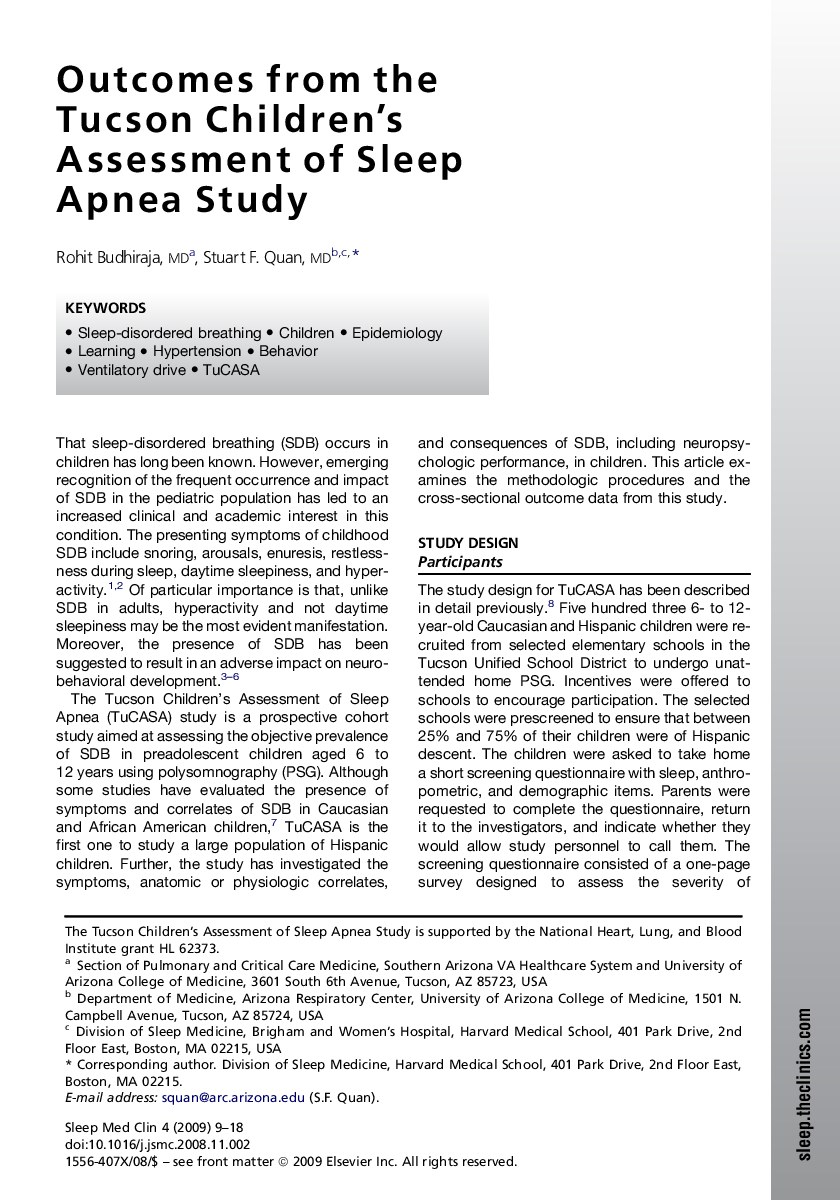| Article ID | Journal | Published Year | Pages | File Type |
|---|---|---|---|---|
| 3837718 | Sleep Medicine Clinics | 2009 | 10 Pages |
Abstract
Sleep-disordered breathing (SDB) is increasingly recognized as an important clinical problem in children; however, the clinical, anatomic, and physiologic correlates of SDB have not been studied extensively in a general population sample using polysomnography to document the presence of SDB. The Tucson Children's Assessment of Sleep Apnea Study is a longitudinal cohort study of 503 Caucasian and Hispanic children aged 6 to 12 years old who underwent polysomnography and neurocognitive testing at the time of recruitment. Subsets of the cohort had additional MR imaging and pulmonary physiologic testing. Initial cross-sectional analyses indicate that SDB is associated with behavioral abnormalities, hypertension, learning problems, and clinical symptoms such as snoring and excessive daytime sleepiness. Future follow-up of the cohort will assess the impact of SDB on subsequent childhood development.
Keywords
Related Topics
Health Sciences
Medicine and Dentistry
Medicine and Dentistry (General)
Authors
Rohit MD, Stuart F. MD,
